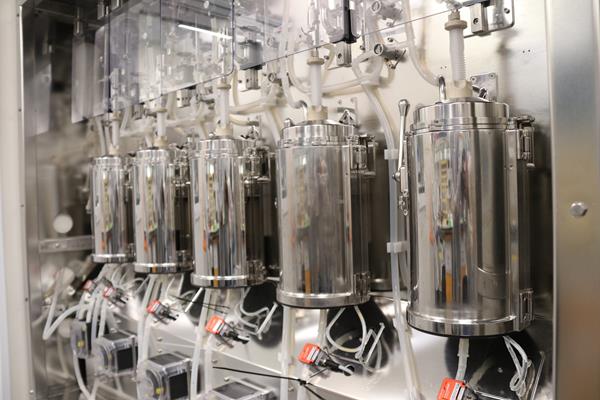Ever After Foods, an innovative food tech company based in Haifa, Israel, recently unveiled its groundbreaking bioreactor system designed for producing cultivated meat. This initiative has received backing from the Tnuva Group, Israel’s most prominent food producer, and it represents Ever After Foods’ solution to bringing cultivated meat to the mainstream market on a large scale.
Ever After Foods’ unique breakthrough lies in its proprietary bioreactor setup, which has the potential to tackle the central challenge of escalating cultivated meat production. The firm’s production facilities require notably less initial investment and operational costs, which, according to the company, leads to a surge in productivity by an impressive 700 percent in comparison with other cultivated meat technologies.
Ever After Foods’ CEO, Eyal Rosenthal, explained the challenges confronting other cultivated meat firms. “Current cultivated meat companies all use very similar methods for growing cells and face insurmountable challenges when it comes to scaling production in a cost-effective manner,” Rosenthal said in a press release. He argued that these companies would need enormous bioreactors exceeding 10,000 liters to reach cost parity, which is impractical for animal cell usage.
Related: Lab-Grown Meat Approved by the FDA
The game-changing technology of Ever After Foods permits a substantially greater capacity for cultivated meat production, yielding efficiencies that minimize resources and costs. Rosenthal mentioned that, with only a 35-liter bioreactor, the company can currently yield over ten kilograms of cultivated meat and they have a feasible plan to scale production to achieve cost equivalence.
“Leveraging its unique production platform, Ever After Foods will transform the food system by reinventing how we produce and consume meat,” said Eyal Malis, CEO of the Tnuva Group, in the same press release. “Ever After Foods is prepared to spearhead the move toward the efficient development, production and distribution of delicious, high-quality cultivated meat products at mass scale.”
Ever After Foods strongly emphasizes the necessity for sustainable protein sources, particularly as the United Nations (UN) projects the global population to hit 9.7 billion by 2050, coupled with a rise in global meat demand. Conventional natural resources won’t sustain this, but Ever After Foods argues that cultivated meat can offer an animal-friendly alternative.
Recent research suggests that cultivated meat is more sustainable than traditional animal products, especially when coupled with renewable energy use. Some market projections suggest that the global cultivated meat market could reach $290 billion by 2035, which would account for about 11 percent of annual global protein consumption, despite current regulatory uncertainties.
Although currently only available in Singapore, cultivated meat is poised to make a global impact with several firms gearing up to expand their production. Fellow Israeli cultivated meat company, Believer Meats, is in the process of constructing what it asserts will be the biggest facility for cultivated meat production to date. Meanwhile, Seawith, a biotech startup from Korea, has recently entered into a strategic alliance with Esco Aster, a certified producer of cultivated meat, aiming to commercialize the production of cultivated meat.
Previously known as Plurinuva, Ever After Foods was established last year as an offshoot from Pluri, Inc., a forerunner in the field of 3D cell-based food technology.
“Cultivated meat, which addresses concerns about food security, health, sustainability and animal welfare, represents the future of food,” Rosenthal concluded. “Our new name, branding and logo are a testament to our commitment to sustainably delivering the future of meat, ever after.”












Join or login to leave a comment
JOIN LOGIN